Now Playing
Current DJ: Liz Mason
Out Hud The Song So Good They Named It Thrice from Let Us Never Speak Of It Again (kranky) Add to Collection
Requests? 773-DJ-SONGS or .(JavaScript must be enabled to view this email address)
Welcome to The Fourth Wall, CHIRP's weekly e-conversation on cinema. This week's subject is the 2013 comedy-drama Drinking Buddies.
This edition is written by CHIRP Radio volunteers Kevin Fullam and Clarence Ewing.
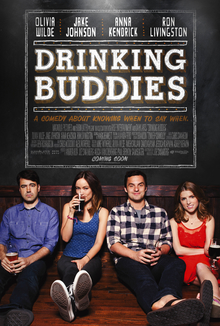 Kevin:
Kevin:
We've delved into the world of marriage in The Fourth Wall via Revolutionary Road, but I don't think we've done the same with dating and singledom? Countless hours and millions of dollars have gone into trying to figure out which sorts of people are compatible. And parsing it further, which traits are compatible. Christian Rudder turned the "science" of compatibility into a dating website (OKCupid) and later a book (Dataclysm) which revealed all sorts of interesting societal quirks that were gleaned while trying to crack this mystery.
[Something that CHIRP listeners might appreciate is the Dataclysm breakdown of musical preferences in dating profiles by race. In a finding that will likely surprise no one, there apparently ain't a band that denotes "whiteness" more than Belle & Sebastian. Ha!]
In Hollywood, the notion of compatibility has historically been rather simple. How many times have we seen partners portrayed as being completely alike... or polar opposites? "Let's draw up a man and woman who have nothing in common, and watch the sparks fly when they meet!" Though I generally get the feeling that when film and television depict already-established couples, they're often more alike than not? Steven and Elyse Keaton of Family Ties. Claire and Cliff Huxtable of The Cosby Show (uh, too soon...?). Any of the mob wives on The Sopranos. (We would expect them all to be as shallow and materialistic as their criminal husbands, and we are not disappointed.)
In director Joe Swanberg's 2013 film Drinking Buddies, we follow a pair of seemingly disparate Chicago couples. Kate (Olivia Wilde) is a free spirit who's also the marketing arm of Revolution Brewing, and she's seeing Chris (Ron Livingston), an introspective bookworm and music producer. Meanwhile, Kate's co-worker, the gregarious Luke (Jake Johnson) is a toiler on the brewery floor who lives with Jill (Anna Kendrick), a sweet, well-manicured woman who enjoys fine arts in her spare time.
Welcome to The Fourth Wall, CHIRP's weekly e-conversation on cinema. This week's subject is the heist thriller Good Time.
This edition is written by CHIRP Radio volunteers Kevin Fullam and Clarence Ewing.
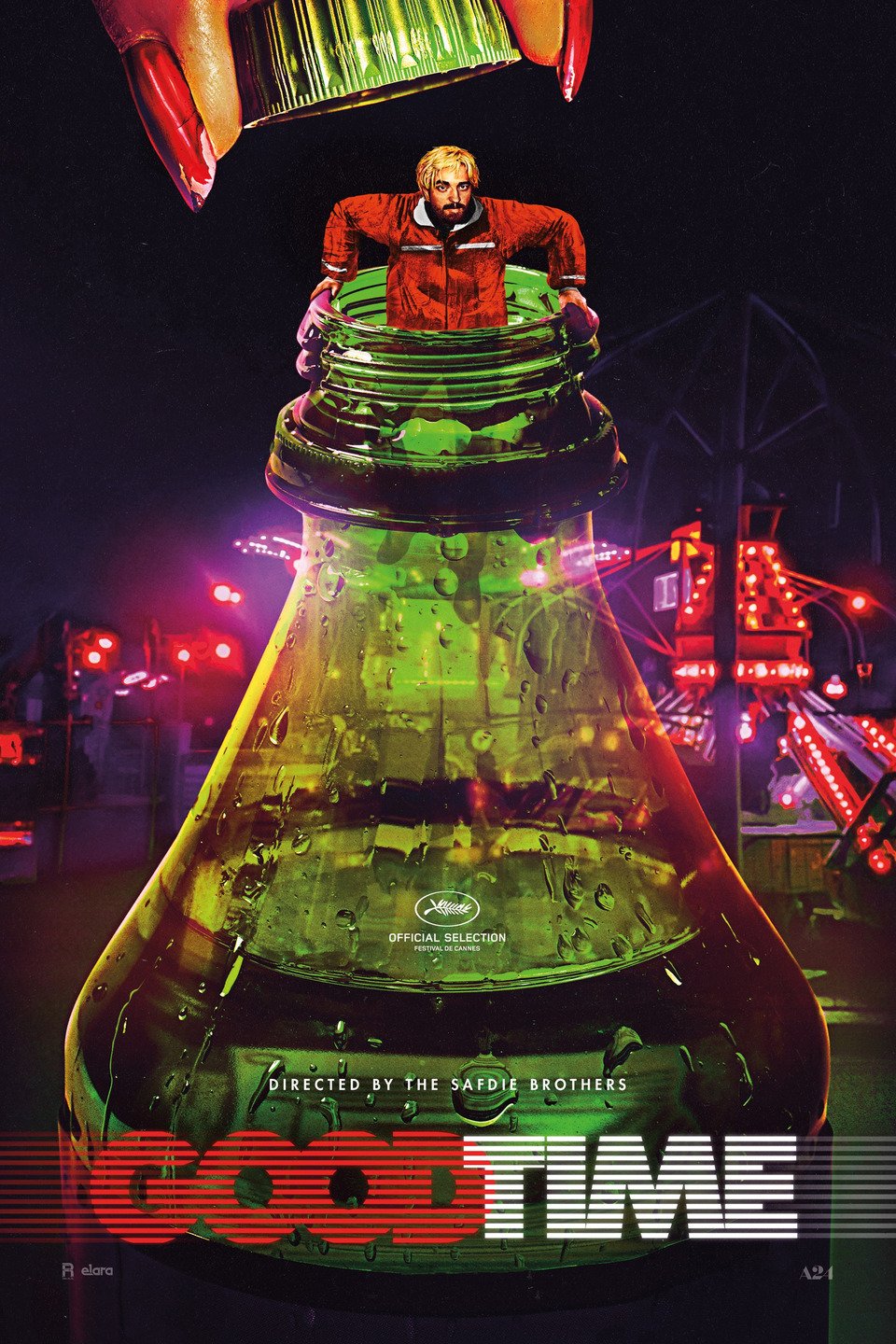 Kevin:
Kevin:
"Bank heists are performed by professionals. Amateurs, don't try this at home -- and especially not in an actual bank." -- K.J. Fullam
What would Danny Ocean & Co. make of the sibling duo of Connie and Nick Nikas? The ramshackle robbery engineered by the latter at the outset of 2017's Good Time is probably an accurate depiction of what would occur if one of us tried to knock over a bank and had, oh, an hour or so to prep beforehand.
The ultra-suave Rat Pack this is not. Connie (Robert Pattinson) is a deadbeat who, while dragging along his mentally-handicapped brother Nick, clumsily robs a NYC bank to the tune of $65,000. Unbeknownst to him, the money is marked, and thanks to explosive dye packs, the two of them are soon literally marked as well. Nick is woefully unequipped for the ensuing getaway; he quickly gets hauled in by the police and is set to be shipped off to Riker's Island. As most of the stolen money is ruined by the dye and thus not enough to cover the bail, Connie is forced to ad-lib an assortment of schemes over the next 24 hours in the hopes of freeing him... with misfortune befalling any unfortunate soul who gets sucked in along the way.
Welcome to The Fourth Wall, CHIRP's weekly e-conversation on cinema. This week's subject is the NetFlix documentary 13th.
This edition is written by CHIRP Radio volunteers Kevin Fullam and Clarence Ewing.
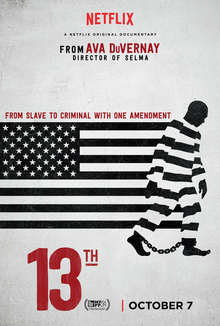 Kevin:
Kevin:
Truth can be a murky concept. Truth when it comes to politics? Well, lots of folks might chuckle at that association, right? Back in the '90s, I enjoyed Michael Moore's political documentaries (particularly his first, Roger & Me), until I realized that I was really only getting a slice of the story... namely, the slice that supported his anti-corporate polemics. Moore was a very funny filmmaker in those days, and offered up plenty of clever critiques of American culture in general. Was it fair to call Corporate America on the carpet for its misdeeds? Absolutely. Were the issues discussed in his work much more nuanced than he led people to believe? Again, absolutely .
One complicating factor is that we all bring our own biases and backgrounds into political discussions. My worldview and set of experiences might be dramatically different than someone else's. When it comes to turning a critical eye on a non-political movie like The Rider , this difference may not matter much -- how many of us know anything about horses, rodeo, and living in the Dakotas? But I'm a student of history and government, and thus I'm going to be much more guarded when it comes to political arguments that someone else is selling me.
Welcome to The Fourth Wall, CHIRP's weekly e-conversation on cinema. This week's subject is the movie Tully.
This edition is written by CHIRP Radio volunteers Kevin Fullam and Clarence Ewing.
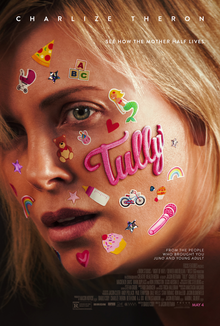 WARNING: Major Spoilers Ahead…!
WARNING: Major Spoilers Ahead…!Clarence:
Marlo (Charlize Theron) is far from loving life. She and her husband Drew (Ron Livingston) are parents of two children with another one almost due. Ron has checked out on the domestic front, Marlo’s son is having developmental problems at school and is looking at expulsion, and there’s general sense that Marlo’s existence is not the one she wanted, which she might be able to do something about if she could find 10 minutes to get some sleep.
After Marlo gives birth to #3, she begins behaving in ways that suggest postpartum depression. Her wealthy brother Craig (Mark Duplass) offers to pay for a night nanny to help her out. Marlo resists at first, but soon Tully (Mackenzie Davis), a twentysomething free spirit whose youthful energy is matched by her earthly wisdom, appears at Marlo’s door, ready and willing to assist. In every way, Tully is exactly what Marlo needs. Whether tending to the newborn, baking cupcakes for school, or jumpstarting Marlo and Drew’s love life, Tully is perfect. Maybe too perfect...
Welcome to The Fourth Wall, CHIRP's weekly e-conversation on cinema. This week's subject is The Killing of a Sacred Deer.
This edition is written by CHIRP Radio volunteers Kevin Fullam and Clarence Ewing.
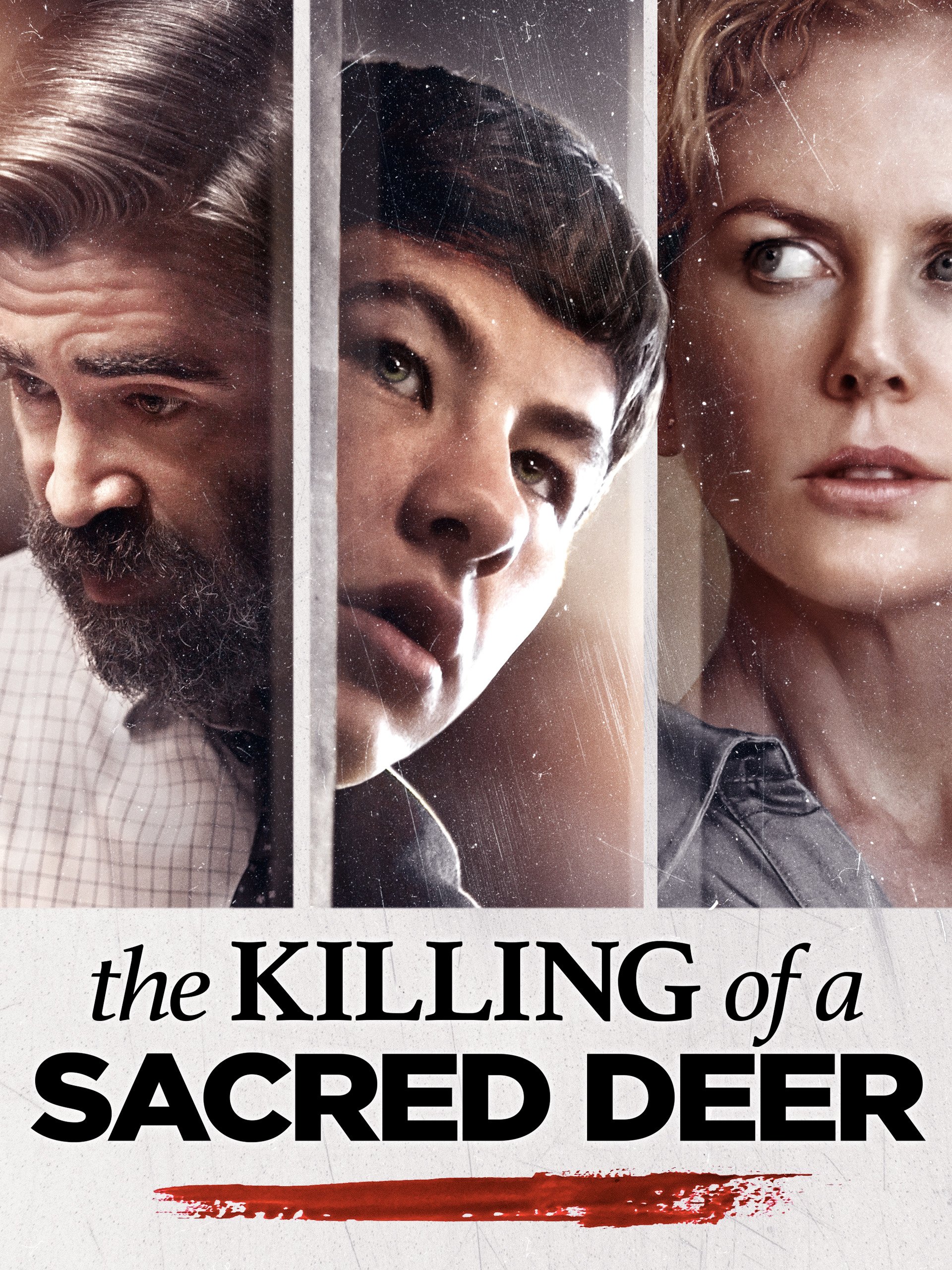 Kevin:
Kevin:
One popular storytelling recipe:
1) Start with one seemingly perfect, well-to-do family.
2) Add one shady interloper.
3) Stir slowly.
It's certainly a formula tried and true in genres ranging from comedy (What About Bob?) to thrillers (Cape Fear). I suspect that part of the trope's appeal stems from the jealousy that we tend to have of pristine families who appear to have it all. And so, we wonder: how much stress can we inject into these households before even fundamentally serene people start to crack?
Steven and Anna Murphy (Colin Farrell and Nicole Kidman) live in a beautiful home in a gorgeous neighborhood. He's a heart surgeon of some renown, and together they're the parents of two cheerful kids, Kim and Bob. When Martin (Barry Keoghan), a socially awkward high-schooler, shows up during one of Steven's shifts, we're originally led to believe that he's simply an overzealous kid eager to ingratiate himself with a star physician. Soon afterwards, however, we discover that they share a dark history... one in which Martin holds Steven accountable for a personal tragedy. And in retribution, Martin calmly lays out the parameters for their new relationship with a chilling succinctness.
Unless Steven makes restitution for what Martin perceives as a gross injustice, Bad Things will start happening to Steven's family. And indeed they do. His children start to lose the use of their legs. Then their appetites. Much like what was said of Arnold's T-800 in The Terminator, Martin can't be reasoned with or bargained with, and he doesn't feel remorse for the children that soon suffer his wrath. He also doesn't want any money -- his required "restitution" is the sacrifice of a family member.